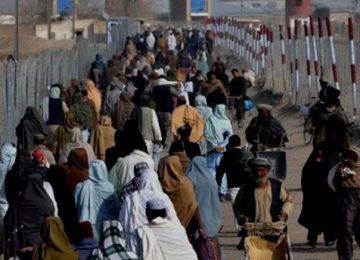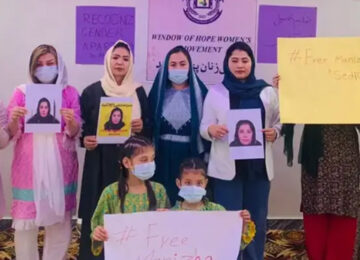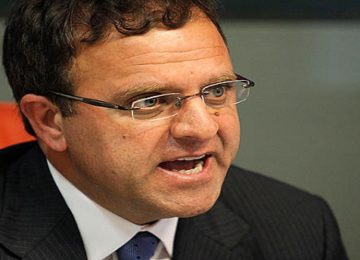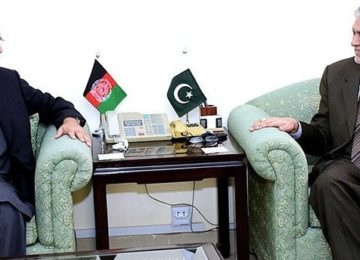With an apparent easing up of tensions between Washington and Islamabad, the Trump administration has increased its push for reaching a negotiated settlement in Afghanistan. Alice Wells, the principal deputy assistant secretary for the State Department’s Bureau of South and Central Asian Affairs, on her visits to both Afghanistan and Pakistan reiterated the US intentions for reaching a political solution for the Afghan conflict. “I think it creates this impulse for everyone to renew their efforts to find a negotiated political solution,” Wells told reporters in Kabul.
Wells was visiting Afghanistan and Pakistan for four days in an attempt to reach a consensus among the warring groups in Afghanistan. “The support that we saw, not just from the Afghan people but from the Taliban commanders and foot soldiers was extraordinary,” she said, while discussing the Eid ceasefire in Afghanistan. Afghan President Ashraf Ghani had recently offered unconditional peace talks to the Taliban, with the militant group rejecting the offer. The Taliban called the Ghani administration ‘a US puppet’, and hence demanded direct talks with the US along with asking for a complete coalition withdrawal from Afghanistan.
Mawlawi Hibatullah Akhundzada, the Taliban leader, in his Eid message said, “The only path to rescuing ourselves from all these calamities is for all American and other occupying forces to leave our country and for an independent, Islamic, intra-Afghan government to take root”. Interestingly, during the same time, US State Secretary Mike Pompeo had hinted at removing the obstacle of discussing the troop withdrawal.
Wells, however, again accused Pakistan of indirectly supporting the Taliban by saying, “Right now it’s the Taliban leaders, and frankly it is Taliban leaders who aren’t residing in Afghanistan, who are the obstacle to a negotiated political settlement,” along with adding that the US had “not yet seen that sustained and decisive action on the part of Islamabad that it was looking for”. Pakistan’s foreign office spokesman, while responding to Wells’ statement, dismissed the latest US calls for asking Pakistan to single-handedly bring the Taliban to the negotiating table. Pakistan maintains that all stakeholders in Afghanistan share an equal responsibility in this regard.
During her stay in Pakistan, the US Embassy in Islamabad, in a statement, said that Wells’ visit “focused on the role that Pakistan can play in achieving a peaceful resolution to the conflict in Afghanistan.” Pakistan army’s spokesman, after Wells’ meeting with the Army Chief, issued a similar statement saying that the two sides “reaffirmed the commitment towards the common goal of peace and stability in the region and discussed measures towards that end.”
Earlier in June, it was reported that the apparent Pak-US tensions had eased relatively after US Secretary of State Mike Pompeo held a telephonic conversation with Pakistani army chief General Qamar Javed Bajwa. The US has also appeared to ease some pressure on Islamabad hoping that it could encourage Pakistan to help promote ‘peace and reconciliation with the Taliban’, which could ultimately help bringing an end to the Afghan war. According to reports, Pompeo and Bajwa ‘discussed ways to advance bilateral relations and the need for political reconciliation in Afghanistan, and the importance of targeting all militant and terrorist groups in South Asia without distinction’. Pakistan had described the conversation as productive and positive.
It is worth noting that recent visits, phone calls and meetings between high profile US officials and Pakistani leadership suggests a significant improvement in ties between both the countries.
© Copyright Center for Research and Security Studies (CRSS) and Afghan Studies Center (ASC), Islamabad.








